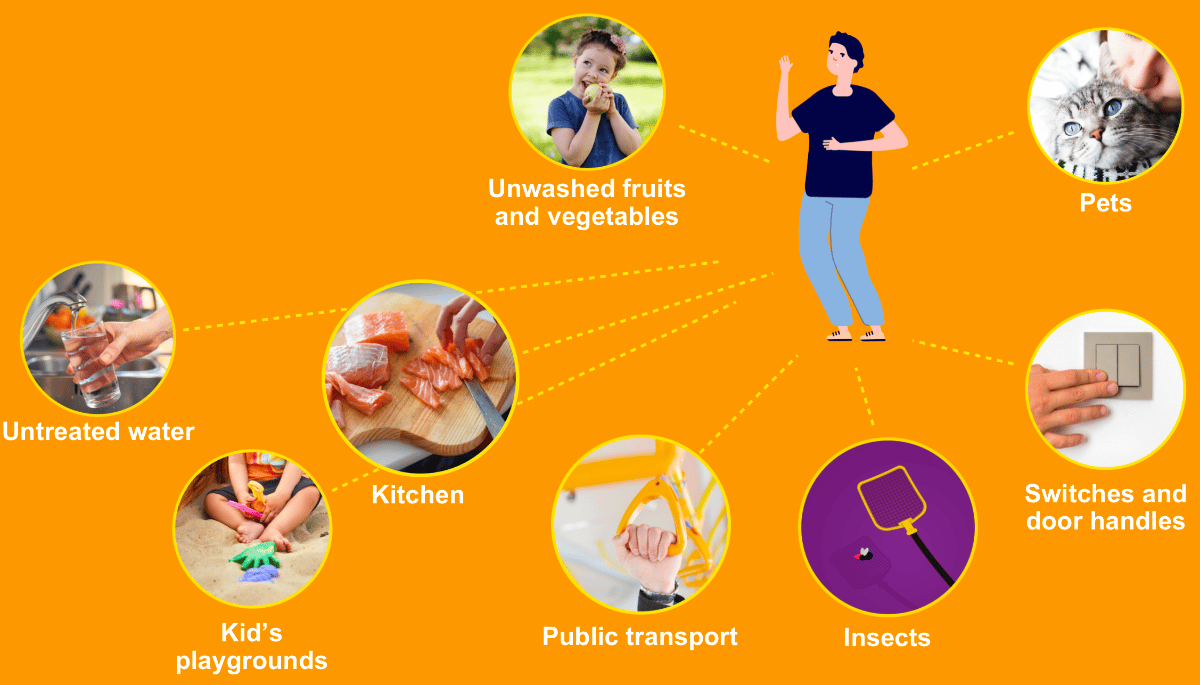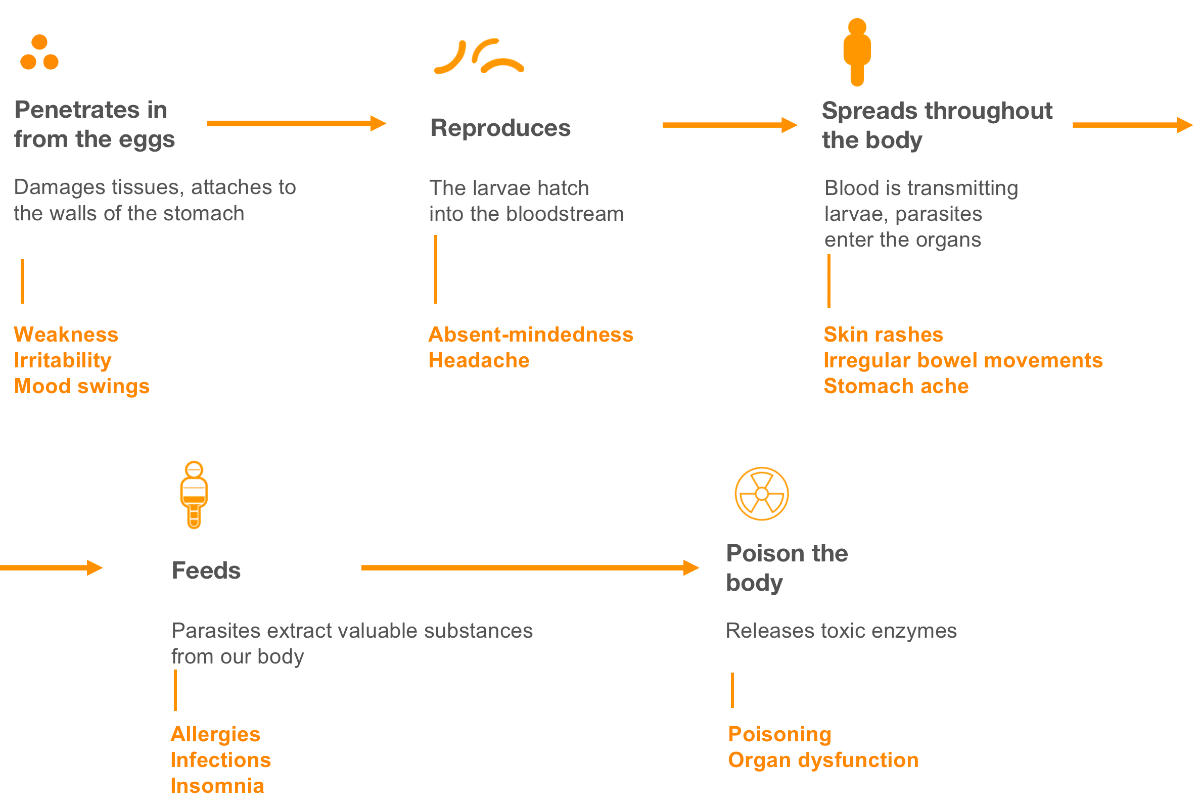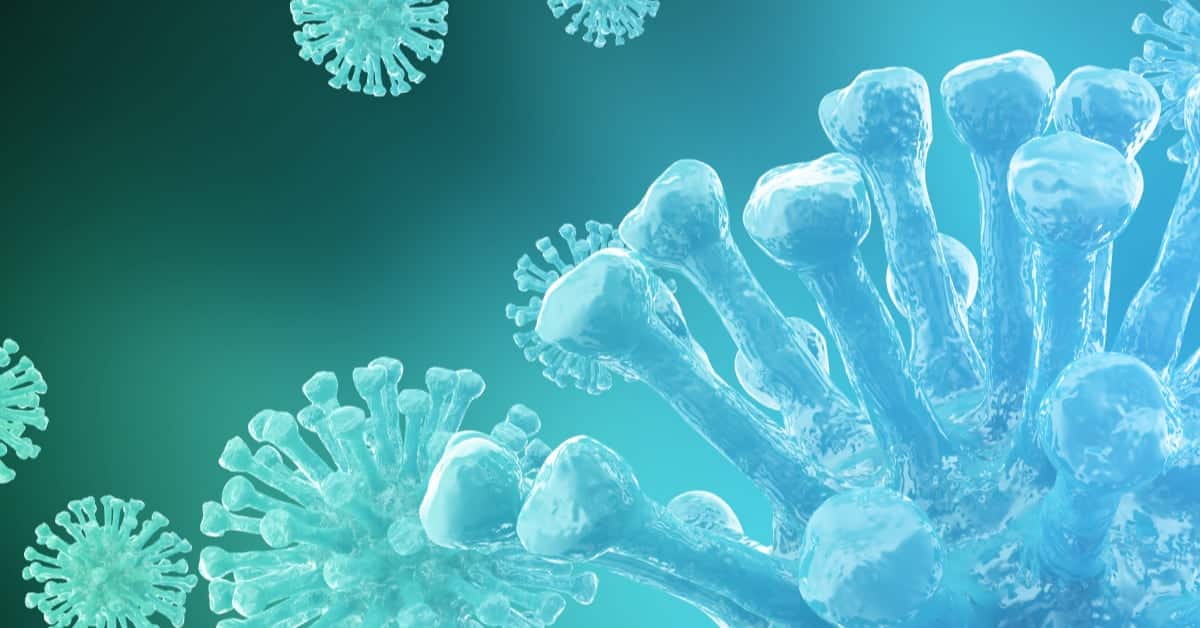Every Fifth Person in the World Is Infected with Parasites

According to data from the World Health Organization, 19.5% of the world’s population (1.5 billion people) is infected with parasites. This means that one in every five people globally is affected.
The human body can host 150 different types of parasites (worms), including pinworms, roundworms, Toxocara, Ascaris, and tapeworms. These worms can inhabit various organs in the human body—not just the intestines, but also the lungs, liver, pancreas, and even the brain.
Parasitic infections can mimic familiar diseases, making them difficult to recognize and diagnose.
To detect the presence of parasites, watch for the following symptoms:
- Malaise, weakness, fatigue
- Allergies (skin rashes, coughing, asthma attacks)
- Snoring or teeth grinding at night
- Insomnia
- Decreased or increased appetite
- Nausea, vomiting without poisoning, abdominal pain
- Itching around the anus
- Asymptomatic elevated temperature
- Diarrhea or constipation
- Weight loss with a good appetite
- Muscle and joint pain without physical exertion
- Swollen lymph nodes
Sources of Helminths

How do parasites enter our bodies?
- Dirty hands: Infections can occur not only from your own hands but also from those of vendors or food service workers.
- Public places: Contact with door handles, shared cloakroom facilities in theaters and restaurants, and other common surfaces.
- Money: Money can harbor parasites and their larvae.
- Poorly processed food: Inadequately washed fruits, vegetables, salads, poorly cooked or raw meat and fish, and improperly prepared caviar.
- Insects: Bloodsucking insects can carry worm larvae.
- Open water: Parasite larvae can enter through the skin, wounds, or mucous membranes while swimming. Water with larvae can accidentally enter the mouth.
- Unboiled water: Giardia larvae can be found even in chlorinated tap water.
- Pets: Animal fur can carry worm eggs. These eggs can remain viable for up to 6 months and can be ingested through dust, toys, carpets, underwear, and bedding. Pets can spread eggs through their breath or feces, which can dry out and be carried by the wind.
- Open food products: Food sold on the street (e.g., street-baked waffles, burgers, ice cream, etc.).
The risk of acquiring parasites is higher in people with:
- Reduced immunity
- Gallbladder diseases
- Imbalance in gut flora
- Reduced stomach acid
- Inadequate nutrition
- Disrupted enzyme activity
Parasites can enter the body through the mouth, wounds, or cuts.
How Do Parasites Affect the Human Body?
Parasites (from Greek, parasitos – table companion) are organisms that live on or inside another organism (the host), deriving nourishment from it. The host does not benefit from this relationship; instead, its tissues are damaged, and general exhaustion occurs. Helminthiasis is the most common and widespread group of parasitic diseases in humans.

Coral Club offers a 30-day antiparasitic program for adults—Parashield or Parashield Plus—which effectively eliminates various types of parasites and restores gut flora.
Benefits of Completing the Antiparasitic Program:
- Elimination of parasites
- Detoxification and removal of toxins
- Restoration of gut flora
- Improved immunity
Registration in Coral Club
Please fill out the registration form and you will receive a unique Club Member ID (CCI ID), you will become a Club Member and you will be able to purchase products with a 20% discount and will have access to other benefits.
Registration of discount card
Please carefully read the terms of registration using the referral link:
- Clicking this link, you confirm your desire to join Coral Club in Sanita Kozlakovska’s structure, who becomes your consultant/sponsor;
- By clicking on this link, you confirm your desire to receive information about the company’s products, the concept of health of its application and the principles of the company’s work in English.
I agree
Registration form
You can contact us, if you have any questions.





